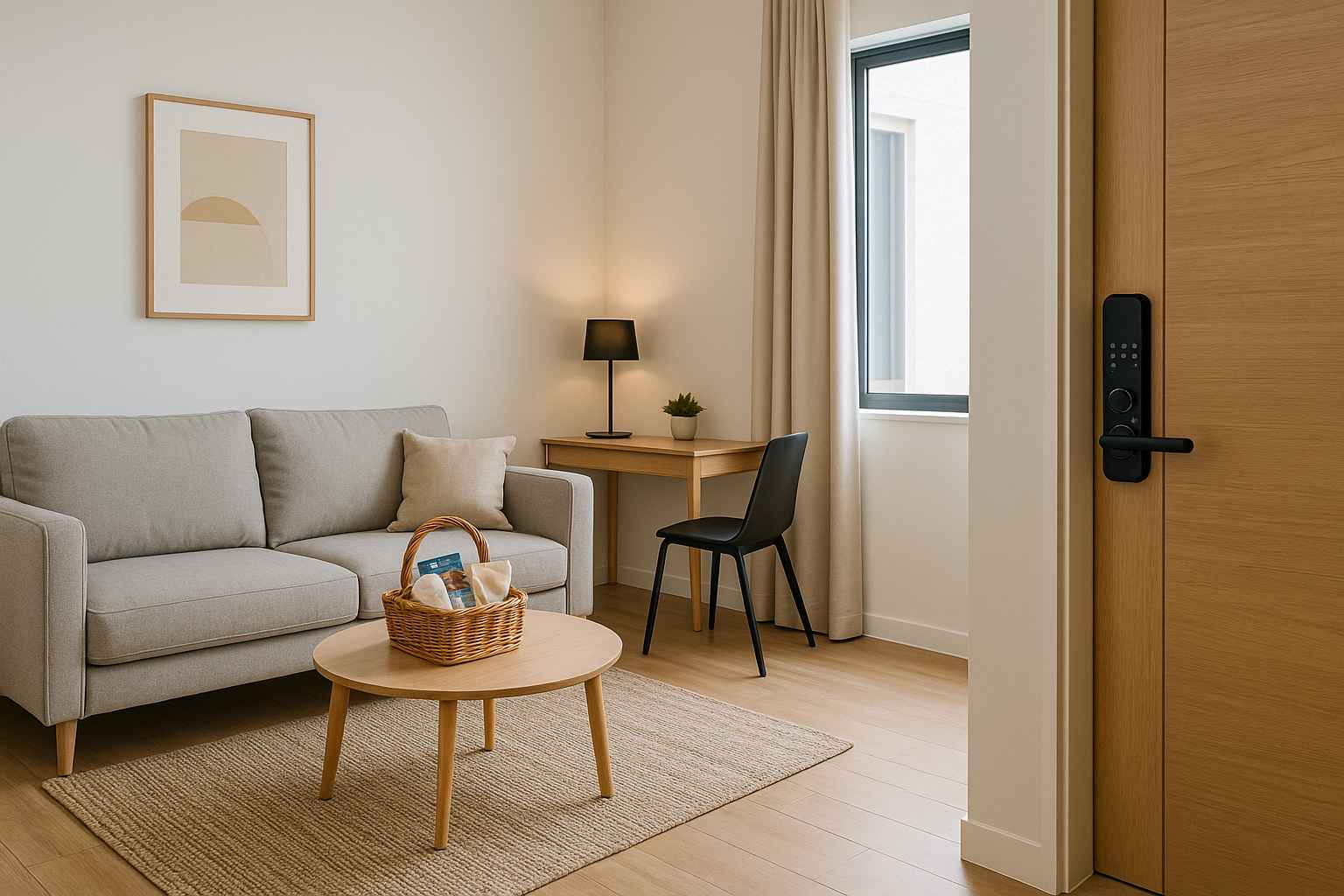Introduction: What Airbnb Is (and Isn’t)
Airbnb connects hosts who have spare space with guests seeking short-term stays. Unlike traditional hotels, you manage your own mini-hospitality business: pricing, listing, guest communication, and local compliance. Success comes from strong market selection, high-quality listings, and consistent guest experience.
Quick Start Checklist
- Choose your market and property type (entire home, private room, shared room).
- Verify local regulations, permits, and HOA/building rules.
- Set up your business structure, insurance, and tax tracking.
- Prepare the space: safety, essentials, design.
- Create a standout listing (photos, title, description, amenities).
- Price smartly (base price + seasonal adjustments).
- Automate messaging, cleaning, and calendar sync.
- Launch with promotional pricing to earn initial reviews.
- Track KPIs (occupancy, ADR, RevPAR, 5-star rate) and optimize monthly.
Step 1: Choose the Right Market
- Demand signals: tourism trends, business hubs, proximity to hospitals/universities/event venues.
- Rules: confirm if short-term rentals are allowed, required permits, and any night caps.
- Seasonality: review peaks (holidays, events) and off-season gaps you’ll need to fill with discounts or longer stays.
Tip: If the area is highly seasonal, consider 28+ day stays in low months to stabilize occupancy.
Step 2: Get Legal, Insurance & Taxes Right
- Business setup: sole proprietorship or LLC (varies by country).
- Permits & registration: follow city/municipal rules; some require license numbers in listings.
- Insurance: host liability + contents coverage (beyond standard landlord/tenant policies).
- Taxes: track income/expenses; check local tourist/occupancy taxes and how they’re remitted.
Always confirm current regulations with your municipality and building/HOA before listing.
Step 3: Prepare the Space to “Hotel Standard”
Non-negotiables:
- Smart lock or keyless entry, smoke/CO detectors, first-aid kit, fire extinguisher.
- Hotel-grade linens & towels (2–3 sets), blackout curtains, quality mattress.
- Fast Wi-Fi, dedicated workspace (if targeting business/long-stay guests).
- Stocked kitchen basics (cookware, utensils, oil/salt/pepper), coffee/tea station.
- Local guidebook: transport, food, worship places, attractions, emergency numbers.
Design: neutral palette, a few statement pieces, warm lighting, clutter-free surfaces. Add 2–3 on-brand accents for recognizable photos.
Step 4: Create a High-Converting Listing
- Title formula: [Type + Hook + Location Cue] → “Modern 2BR w/ Balcony • Near Corniche • Free Parking”
- Photos (12–20): Cover = best wide shot. Include floor plan if possible. Day + dusk exterior, each room wide + details.
- Description: 3 blocks—Highlights, Space & Amenities, Guest Access & Notes.
- Amenities that move bookings: parking, washer/dryer, crib/highchair, blackout curtains, workspace.
Step 5: Pricing Strategy (ADR & Occupancy)
- Base price: benchmark nearby comparable listings.
- Dynamic rules:
- +10–25% for weekends/peak season/events
- –10–20% for mid-week/off-season
- Last-minute gaps: rolling discounts (e.g., –15% inside 3 days)
- Length-of-stay discounts: 7+ nights (5–10%), 28+ nights (15–25%).
- Fees: cleaning fee aligned with actual cost and market norms.
Mini ROI Planner (example inputs):
| Metric | Value (Example) |
|---|---|
| Nightly Base (ADR) | $120 |
| Target Occupancy | 70% |
| Nights Booked / Month | ~21 |
| Gross Revenue / Month | ~$2,520 |
| Fixed Costs (mortgage/rent, utilities, internet) | $1,400 |
| Variable (cleaning, supplies, platform fees ~15%) | ~$500 |
| Estimated Monthly Profit | ~$620 |
Replace with your real numbers to forecast breakeven and cash flow.
Top Cryptocurrency Calculator Apps: Compare Profit & Tax Tools
Step 6: Automate Operations Early
- Messaging: instant booking confirmations, pre-arrival guide, check-in instructions, mid-stay check, check-out + review request.
- Cleaning: standardized checklist; schedule auto-sync with booking calendar; photo proof after each turnover.
- Supplies: bulk ordering + labeled storage; restock list in cleaner app.
- Smart tools: noise monitor (policy friendly), smart thermostat, outdoor camera at entry (if allowed), water leak sensors.
Step 7: Launch Strategy for First 10 Reviews
- Promotional pricing (–15–20%) for first 30–45 days.
- Accept 1-night stays initially to fill gaps and accumulate reviews.
- Same-day bookings allowed if self-check-in is rock solid.
- Personal welcome note + local treats to boost 5-star rate.
- Respond to every review; implement feedback fast.
Ongoing Optimization (Monthly)
- Update lead photo and first 150 characters of description.
- Review pricing vs comps for next 60–90 days.
- Add/retire amenities based on guest asks (e.g., blackout curtains, extra pillows).
- Track: Occupancy, ADR, RevPAR, 5-Star %, Response time, Cleaning defects.
Common Mistakes to Avoid
- Ignoring local rules or building bylaws.
- Overcharging cleaning fees relative to unit size.
- Dark, cluttered, or low-resolution photos.
- Slow responses (>1 hour) hurting search rank.
- No backup cleaner or maintenance plan.
FAQ (Quick Hits)
Is Airbnb still profitable in 2025? Yes—if you select the right market, comply with local rules, and price dynamically.
Do I need a property to start? Consider co-hosting or rental arbitrage where legal.
How many hours per week? With automation and a reliable cleaner/handyman, often 2–5 hours.

